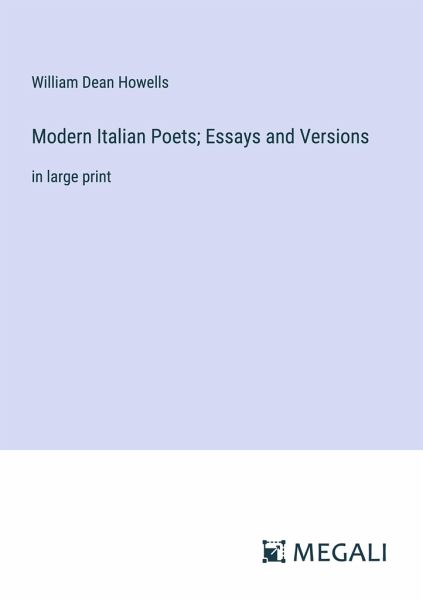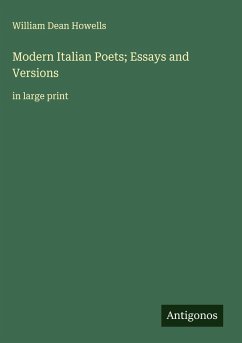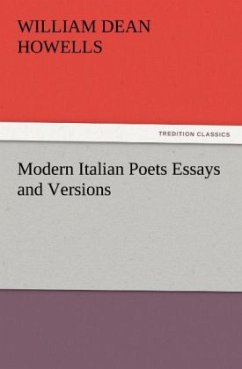Nicht lieferbar

Modern Italian Poets; Essays and Versions
in large print
Versandkostenfrei!
Nicht lieferbar
Weitere Ausgaben:
Reproduction of the original. The publishing house Megali specialises in reproducing historical works in large print to make reading easier for people with impaired vision.









